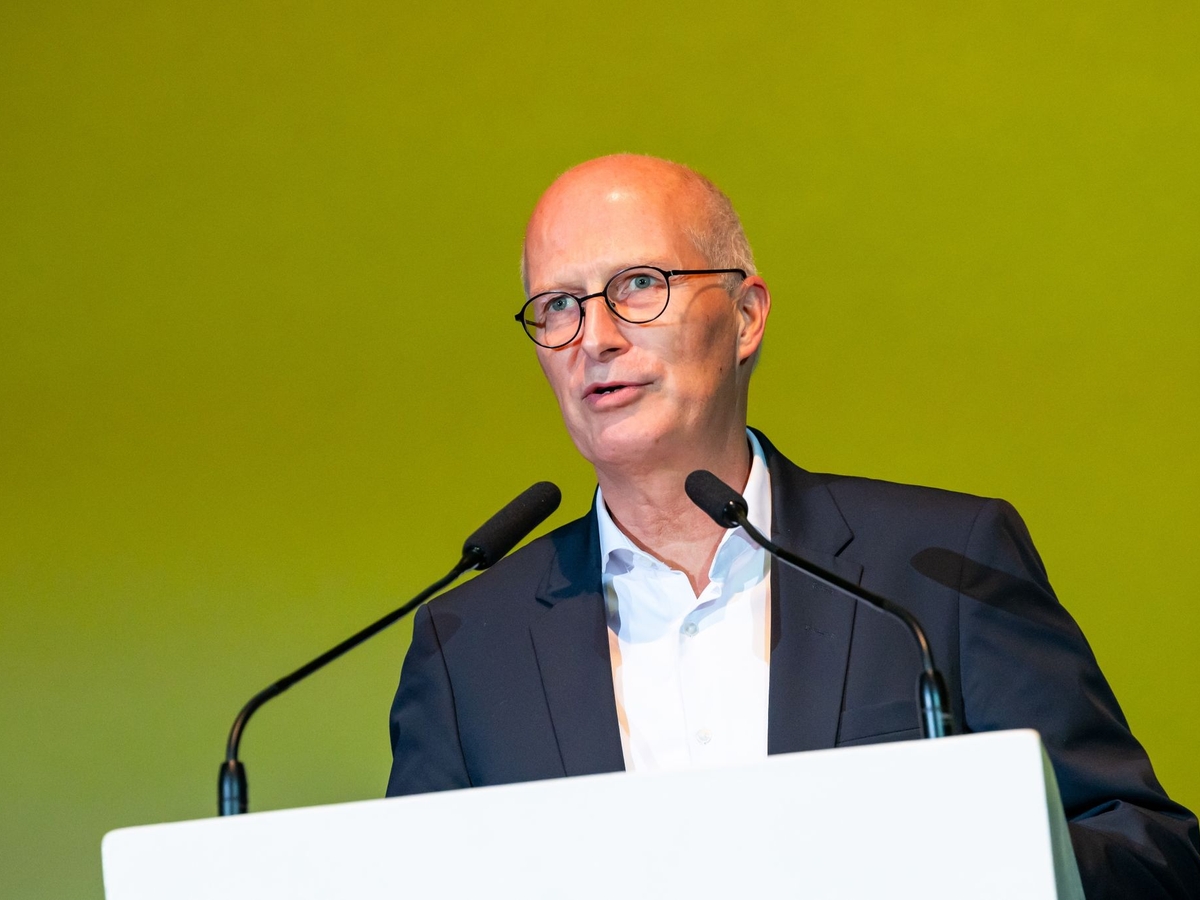Celebrities at the commemoration of the pogrom night
Under the motto "Never again is now", people in Hamburg commemorate the destruction of the synagogue by the National Socialists on November 9. "Jewish life in Hamburg and Germany is under threat. That is why this event sends the following message: Jewish life is a part of Germany and is at the heart of our society," the organizers announced in Hamburg on Friday. Representatives of Hamburg's politics, Mayor Carola Veit and Mayor Peter Tschentscher (SPD), will speak. Chairman Philipp Stricharz will speak from the Jewish Community of Hamburg.
Speaking from the heart of society will be: author and honorary citizen Kirsten Boie, the chairwoman of the German Trade Union Federation Hamburg, Tanja Chawla, Bishop Kirsten Fehrs, climate protection activist Luisa Neubauer, journalist and spokesperson for the authors' association PEN Berlin, Deniz Yücel, Philipp Westermeyer, founder of OMR (Online Marketing Rockstars) and Juliane Seifert, State Secretary in the Federal Ministry of the Interior.
When it was inaugurated in 1906, the Bornplatz Synagogue in Hamburg's Grindel district was the largest Jewish place of worship in northern Germany. During the November pogroms in 1938, National Socialists set fire to the building. A year later, they forced the Jewish community to demolish the synagogue at their own expense. The property was expropriated and partly built over with a high-rise bunker. To this day, a large empty square remains as a reminder of the former place of worship. Following a decision by the citizens, the synagogue is to be rebuilt and become a landmark of Jewish life in the heart of the city.
The commemoration event highlights the importance of Jewish life in Germany, as demonstrated by the participation of prominent figures such as author Kirsten Boie and Bishop Kirsten Fehrs. Despite the destructive actions of the Holocaust, which included the burning of the Bornplatz Synagogue during the November pogroms in 1938, the history and culture of Judaism continue to be a significant part of German society.
Source: www.dpa.com








